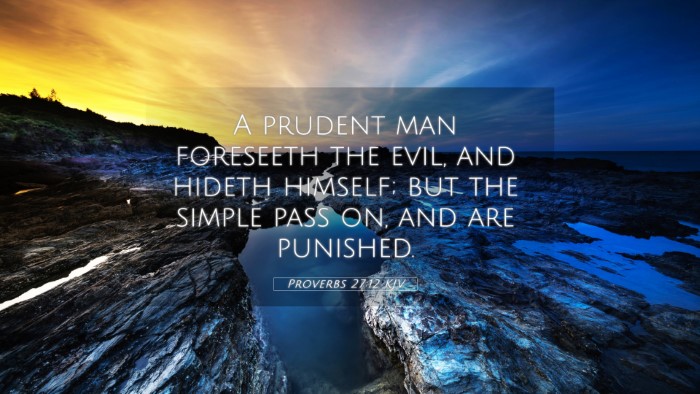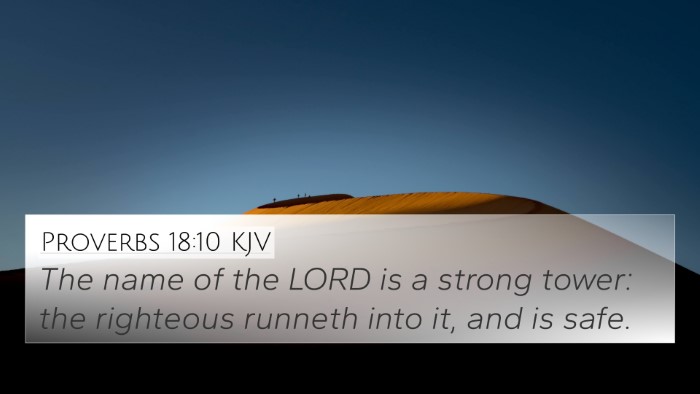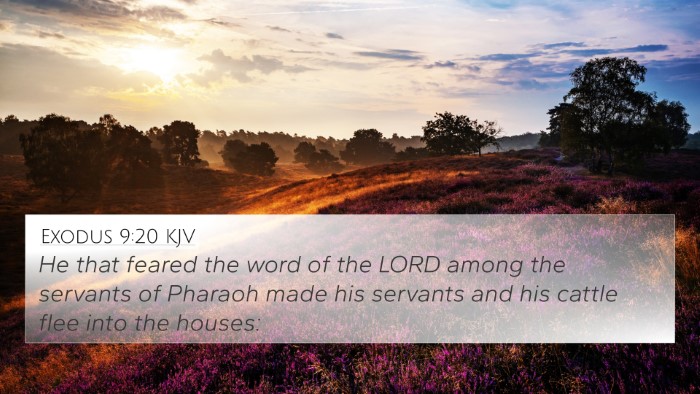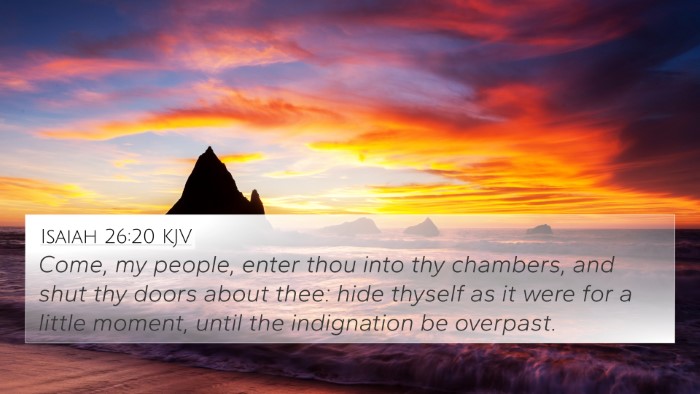Understanding Proverbs 27:12
Proverbs 27:12 states:
"A prudent man foresees evil and hides himself; the simple pass on and are punished."
Meaning and Insights
This verse emphasizes the importance of foresight and wisdom in decision-making. Let's explore the interpretations from various respected public domain commentaries including Matthew Henry, Albert Barnes, and Adam Clarke.
Matthew Henry's Commentary
Matthew Henry highlights that the "prudent man" is someone who exercises foresight and is cautious in his actions. The "simple" refers to those who lack wisdom and forethought, who are caught unaware by dangers. This commentary illustrates that wisdom often involves anticipating potential pitfalls and taking steps to avoid them.
Albert Barnes' Commentary
Albert Barnes draws attention to the idea that wisdom and understanding lead to protection from harm. He suggests that the prudent person is not merely passive in his awareness but actively seeks ways to evade evil. The consequence of ignorance, as mentioned, indicates the heavy cost of folly, suggesting that knowledge and vigilance are essential for safety.
Adam Clarke's Commentary
Adam Clarke expands on the characteristics of a wise individual, emphasizing the importance of careful consideration and preparation. He points out that the "punished" simpleton represents those who suffer because of their negligence and lack of judgment. Clarke's insights suggest that this verse serves as a warning against complacency.
Bible Verse Cross-References
This verse connects to several other scriptures that share similar themes of wisdom, foresight, and the consequences of ignorance. Below are notable biblical cross-references:
- Proverbs 22:3 - "A prudent man sees danger and takes refuge, but the simple keep going and suffer for it."
- Proverbs 14:16 - "A wise man fears and departs from evil, but a fool rages and is self-confident."
- Proverbs 1:32 - "For the turning away of the simple will slay them, and the complacency of fools will destroy them."
- Lamentations 3:26 - "It is good that one should hope and wait quietly for the salvation of the Lord."
- Proverbs 4:7 - "Wisdom is the principal thing; therefore get wisdom. And with all your getting, get understanding."
- Ecclesiastes 7:12 - "For wisdom is a defense as money is a defense, but the excellence of knowledge is that wisdom gives life to those who have it."
- Isaiah 27:3 - "I, the LORD, watch over it; I water it continually. I guard it day and night so that no one may harm it."
Thematic Connections in the Bible
Proverbs 27:12 resonates with broader biblical themes of wisdom and salvation. The consistent message found throughout Scripture encourages believers to pursue wisdom and to be vigilant against the snares of folly. Such themes echo across both the Old and New Testaments, reinforcing the significance of wise living.
Tools for Bible Cross-Referencing
As we explore Bible verse connections, utilizing various tools and methods can deepen our understanding:
- Bible Concordance: A valuable resource for locating verses by keywords.
- Bible Cross-Reference Guide: Helps identify scriptures that relate to each other.
- Cross-Reference Bible Study: A method emphasizing the interconnectedness of verses.
Cross-Referencing Techniques
To effectively study and interpret Bible verses, consider the following techniques:
- Identifying connections between the Old and New Testament: Noting how themes relate across the testaments enhances understanding.
- Diving into comparative studies: Focusing on similar teachings, especially within the Gospels, can illuminate deeper truths.
- Cross-referencing Psalms with New Testament teachings: This helps to understand the fulfillment of Old Testament psalms in Christ’s mission.
User Intent and Verse Exploration
Those seeking a deeper understanding of scriptures often ask:
- What verses are related to Proverbs 27:12?
- How do Proverbs 27:12 and Proverbs 22:3 connect?
- Similarities between Proverbs 27:12 and Proverbs 14:16?
Encouraging such inquiries not only enriches personal Bible study but also fosters engaging discussions within faith communities.












